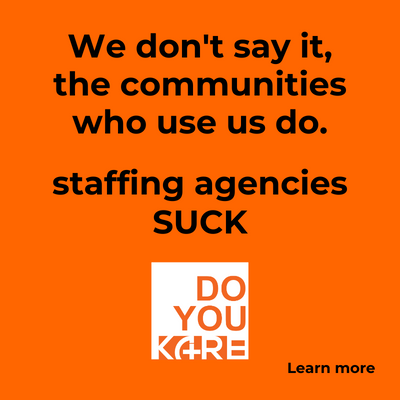First, we were told NOT to respond to bad reviews. Now industry recommendations say to respond to to all reviews — good and bad. Whose guidance should you be following for your senior living community’s strategy?
By Pam McDonald
When you first ventured into the online world of consumer reviews and social media, you may have been advised NOT to respond to bad reviews. The thinking was, why add fuel to the fire? But recent industry recommendations say respond to all reviews — good and bad. Whose guidance should you be following for your senior living community’s strategy?
Senior Housing Forum partner Caring.com offers insight straight from prospects via its annual senior care survey conducted last month among hundreds of family caregivers across the country.
Sneak Peak Webinar
In a sneak preview webinar on Thursday, August 18th at 11am Pacific/2pm Eastern, Caring.com will reveal some findings from actual senior living prospects, including the value they place on online reviews, which review sites they turn to and most trust, and whether it matters to them if senior living providers join the conversation by responding to the reviews.
For example:
-
48% of respondents say senior care websites are the most trustworthy (up from 43% in 2014)
-
12% turn to general review sites like Yelp and Google Local
-
Only 2% say social review sites like Facebook seemed the most trustworthy
-
The remaining 19% fell into the “other” category where write-in responses were dominated by government entities, such as Medicare.gov and state agency websites, as well as healthcare/social services professionals, such as doctors and social workers.
The Value of Authenticity
The vast majority of consumers (8 in 10) say they trust an online review more than a personal recommendation if they believe the review is authentic (according to 2015 data from BrightLocal). Additionally, Caring.com’s findings suggest reviews that prospects trust most are found in the senior care directories where other family caregivers and older adults like them are writing the reviews.
Family caregivers were also asked about the impact of a senior care business’ response to reviews. The top answers were:
-
“It lets me know that the business cares and is listening” (32%)
-
“I don’t think I’ve ever seen a business respond to a review” (30%)
-
“It depends on what the business says” (22%)
-
Only 2% say, “It makes me feel like the business has something to hide,” and 10% indicated that their opinion couldn’t be affected by the business’ response.
Consumer Reviews
Denise Graab, Caring.com’s director of industry marketing notes, “You can’t please everybody your community serves, but you can and should pay attention to what consumers are saying about your business online.
“On some review platforms, you can easily take action to get factually inaccurate reviews removed, or you can post a response and make a positive impression.”
She adds: “Be very mindful of the tone and content of your response — the opinion of the reviewer may already be solidified and your comments can be most influential for others considering touring your community. They want to know that if for some reason they have a problem or concern, they truly can approach management and be well received. Your review response can help persuade them that is really the case.”
(The survey asked about much more than online consumer reviews. Complete results will be unveiled this fall.)
During next week’s webinar Denise will be sharing more specific tips for managing your online reputation and harnessing the value of consumer reviews. To register for the webinar, click on the button below:
She also has published some tips on Caring’s industry blog. Please click on the button below to check out the blog.










